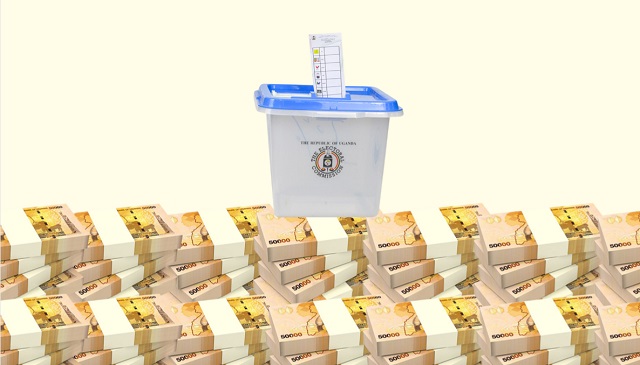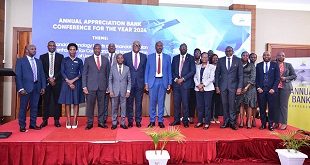
What international money lenders fear most about 2021
Kampala, Uganda | THE INDEPENDENT | Increased government spending and borrowing as President Yoweri Museveni seeks re-election could destabilise the economy in FY2020/21. That is the view of the latest report by the international credit rating agency, Fitch. It is backed by similar projections by the International Monetary Fund (IMF) and World Bank.
“Potential political and social instability around the elections poses a risk to public finances and macroeconomic stability,” the Fitch analysts say.
According to them, there is lingering uncertainty around the eventual succession to President Yoweri Museveni, currently 76 years old, in office since 1986 and expected to seek another term in the next presidential election.
The domestic political and security environment remains stable, they say, but point out that although the president remains popular, the strength of the opposition has been growing and the presidential election scheduled for early 2021 may be among the most contested ones in recent history. The analysis also factors in the ongoing jostling about the possibility that the elections will be postponed as coronavirus-related restrictions affect election campaigning.
Based on these factors and more, Fitch Ratings in its latest report issued in the last week of June, revises its outlook on Uganda’s Long-Term Foreign-Currency Issuer Default Rating (IDR) to Negative from Stable. It also affirms the IDR at ‘B+’.
Fitch’s credit ratings are opinions on the relative ability of a country to meet its financial commitments to creditors; local and international.
The ‘B’ ratings is a highly speculative grade indicating to creditors that material default risk is present, but a limited margin of safety remains.
It means Uganda can currently meet its financial commitments but it could fail in future if its business and economic environment deteriorate. The agency lists a raft of risk factors that could worry lenders.
“The revision of the Outlook on Uganda’s IDRs reflects downside risks to public finances and growth from the coronavirus shock amid a build-up of government debt and persistent twin deficits, which we expect will continue into the medium term,” the Fitch analysts say.
“The fiscal response to the pandemic has so far been contained to tax leniency and supplementary budgets providing over 1% of GDP in additional spending to critical sectors in FYE20. However, there is a risk that the government might have to provide more extensive support to the economy, particularly in a pre-election year.
“We expect the government to cover the fiscal deficit primarily through foreign borrowing mostly on concessional terms, although it is also increasingly pursuing commercial loans,” the Fitch analysts add.
Debt/GDP ratio
According to Fitch, Uganda’ debt ratio is expected to exceed 53% of GDP in FYE21 while the IMF projects it will peak at 59.6 percent of GDP in FY2023/24.
They estimate that the government gross debt (at face value) rose to about 47% of GDP in FYE20, up from 40% in FYE18, including domestic arrears of over 2% of GDP.
This is still below Fitch’s current and historical ‘B’ category medians but the gap is closing.
Uganda’s debt/revenue and interest/revenue ratios are already well above the ‘B’ medians as a result of the government’s still low revenue base, despite ongoing improvements before the pandemic as a result of the government’s domestic revenue mobilisation strategy.
“In our view, the government’s debt ceiling of 50% of GDP in net present value terms is not a credible fiscal anchor and is unlikely to prove binding when tested,” the analysts say.
According to them, the present value of government debt is currently estimated to be about 10% of GDP below face value due to the highly concessional nature of debt.
 The Independent Uganda: You get the Truth we Pay the Price
The Independent Uganda: You get the Truth we Pay the Price


